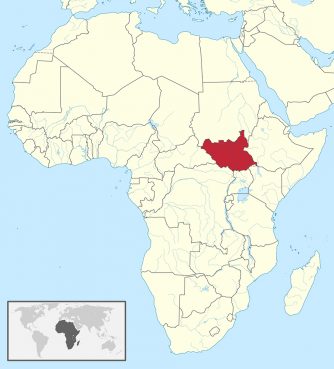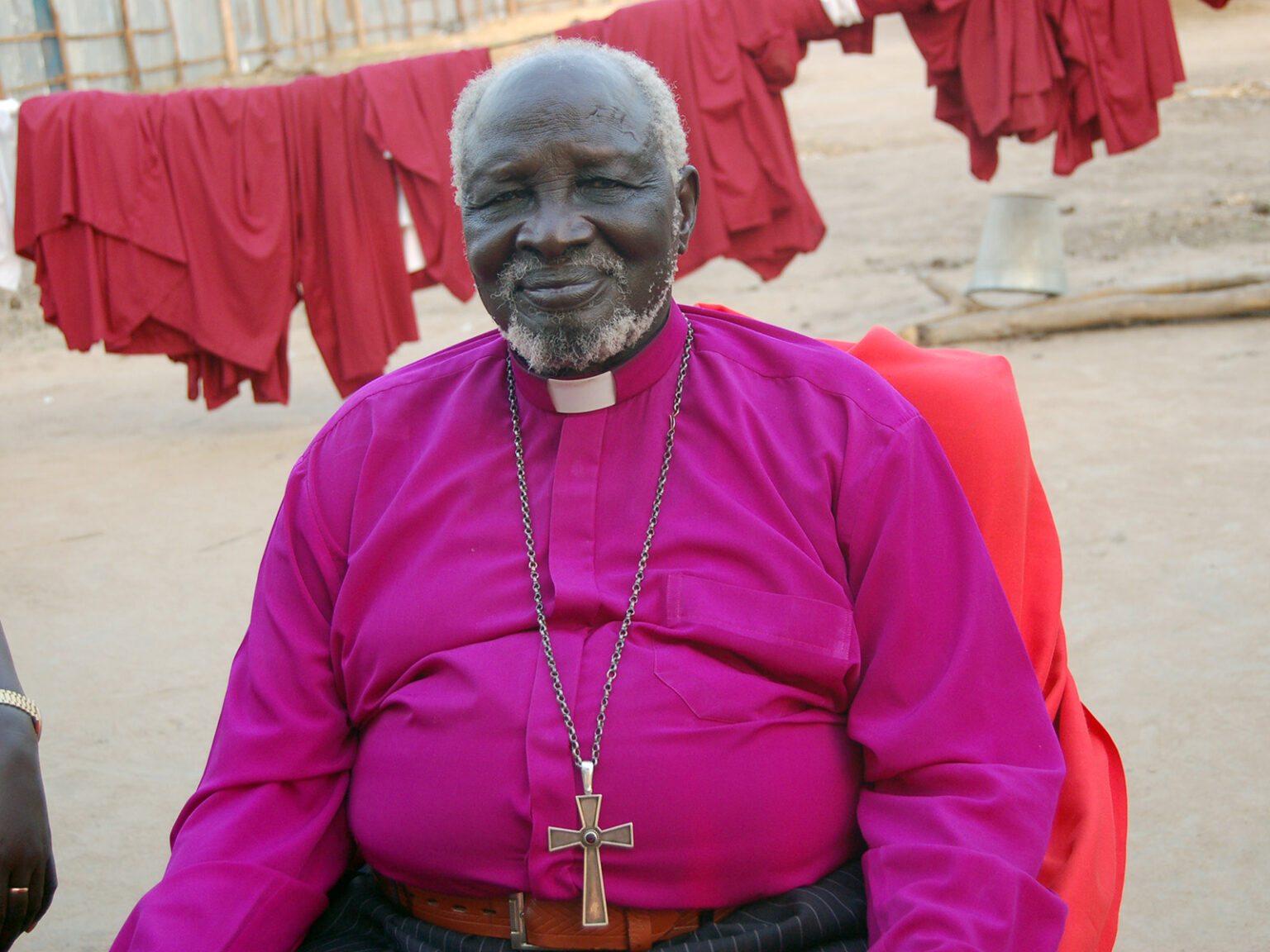The Very Rev. Nathaniel Garang in Bor, South Sudan. (Photo by Fredrick Nzwili)
(RNS) — Garang, who spent much of the Sudanese civil war among the poorest residents, was deemed ‘lost’ in 1988 after not coming to the Anglican Communion’s global meeting.
A South Sudan bishop known in the Anglican Communion as a “lost bishop” because he went missing in the late 1980s during his country’s war against Sudan has died.
The Very Rev. Nathaniel Garang, a retired bishop of Bor, died Feb. 24 while receiving treatment in Nairobi, where he has been since 2024. He was 86. The Diocese of Bor is located along the White Nile, about 200 kilometers north of South Sudan’s capital, Juba.
Sudan came apart in nearly continuous fighting from the early 1970s until the early 2000s, in a war that began in resistance to government policies that included forced Islamization for the southern region, where many inhabitants are Christian or followers of African traditional religions.
Garang spent much of the conflict among the poorest residents, preaching hope, while traversing Africa seeking peace and protection for southern Sudan. He also brought the realities of the war to the international community, traveling to Australia, the United Kingdom and the United States.
He was consecrated the bishop of Bor in 1984, but constant attacks made it difficult for him to settle in his diocese. In the mid-’80s, he was forced to flee with his congregation from his episcopal seat in Bor to the countryside, where he lived and ministered in isolation for several years. As the war ground on, he worked among the people of what would become South Sudan, many of whom held strongly to traditional spirits and deities.
It was during these years that he got his sobriquet “the lost bishop.” In 1988, he was unable to attend the Lambeth Conference, the gathering of Anglican bishops from around the world in the United Kingdom. Robert Runcie, who was archbishop of Canterbury at the time, reportedly pointed at Garang’s empty seat and declared him “The Lost Bishop.” No one knew at the time whether Garang was alive or dead.

The Very Rev. Nathaniel Garang. (Video screen grab)
In 1990 he established contact with the outside world, and he continued to baptize, train and ordain clergy until his retirement in 2011, the year that South Sudan gained its independence, becoming the world’s youngest nation.
“After the independence, he told me that he has brought all the cows from the bush to the compound, and now it was up to the people to tie them down or let them free to go,” said Archbishop Justin Badi Arama, the primate of South Sudan. “I think as he passed on, he was at peace with himself.”
Born in 1940 in the diocese where he later served, Garang went to school with many of those who would fight for South Sudan, and he himself joined the Anya-Nya insurgency in the early 1960s. He fled as a refugee first to Uganda and later to Kenya, where he attended the Nairobi Pentecostal Bible College and obtained a diploma in theology in 1974. He was ordained a pastor the following year.
Church leaders, ordinary citizens and political leaders have sent tributes to Garang’s family and the church, celebrating the bishop as spiritual leader.
Arama called Garang a dedicated servant of God who served with courage and humility. “He was happy with what he has done,” Arama told Religion News Service in a telephone interview. “He was respected and considered a pillar and father of the nation. He was a great mentor to all of us.” The archbishop said Garang had influenced the leaders of South Sudan’s struggle to become God-fearing men.

South Sudan, red, in central Africa. (Map courtesy of Wikimedia/Creative Commons)
According to the Rev. Tut Kony Nyang, general secretary of the South Sudan Council of Churches, Garang was a paternal figure for many South Sudanese church leaders and Christians. “Bishop Nathaniel was a devoted servant of God, a compassionate pastor and a tireless advocate for peace and reconciliation. Even in retirement, he guided and encouraged many,” he said, telling RNS that Garang was remembered as a freedom fighter as well.
“He was very instrumental in the struggle of independence of South Sudan,” said Kony Nyang.
In a statement, South Sudan President Salva Kiir Mayardit mourned Garang as a bishop who defended Christians during the war when religious persecution was a state policy of the Khartoum regime. “The intense advocacy he did on behalf of displaced persons during our war of national liberation illustrated his commitment to the voiceless.”
Garang will be buried in St. Andrew’s Anglican Cathedral in Bor City. His family has urged church leaders, who have quarreled over the defrocking of Archbishop Ruben Akurdid Ngong for canonical disobedience, to put aside their differences and unite for the bishop’s farewell.
John Wuoi Magany, a close family member, stated that the family did not want any bickering during the burial and that everyone was welcome to mourn the bishop.
“If there is a pastor or a bishop coming to the burial, that is the bishop or pastor of Nathaniel. If there is anything that should unite you as church leaders it is the burial of Nathaniel,” he told The Radio Community. “… stay as Christians. Even Muslims who are friends of Nathaniel are welcome to mourn with us.” Religious News Service






